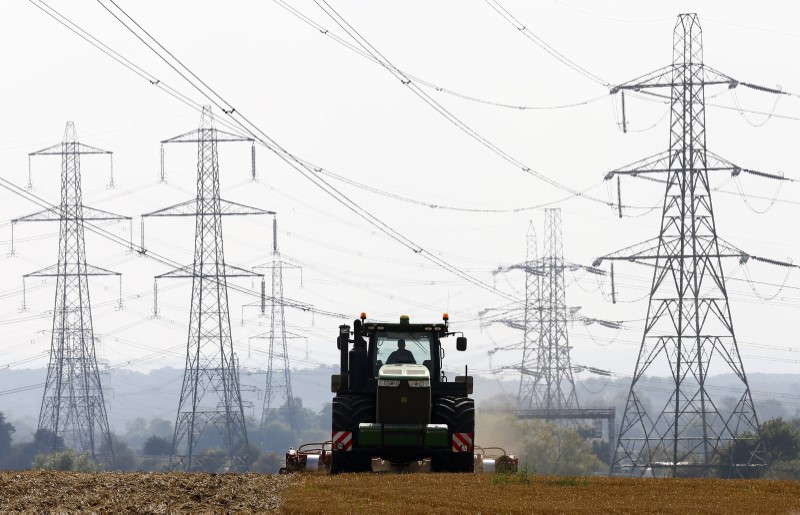By Oleg Vukmanovic
(Reuters) - Britain's National Grid (L:NG) will escape with an arms-length separation of its two main businesses rather than a formal break-up under proposals by energy regulator Ofgem to ensure the group avoids conflicts of interest.
As part of a government review into National Grid's role as both operator and owner of Britain's power grid, the watchdog and the energy ministry set out plans on Thursday for the power system operator division to become a separate company, though still owned by National Grid.
RBC Capital Markets analyst Maurice Choy said that the proposal "seems to be a vote of confidence in National Grid's expertise in managing the supply and demand of power in a changing energy landscape", referring to the growing clamour for more renewable energy.
By far the biggest share of National Grid's profit comes from its ownership of power transmission lines and gas pipelines, with its role as power system operator contributing only 1 percent to 1.5 percent to group earnings, Choy said.
The revised structure could be set up with its own board by April 2019, as well as a sub-committee to review and ensure that investments put consumers' interests first.
INVESTMENT DECISIONS
Under the proposals, which are subject to a consultation period that closes on March 10, the new entity would have its own staff and offices, splitting off decisions about new infrastructure investments.
As more renewable energy plants are built and as users manage their own consumption via so-called smart meters, future investment may need to focus on non-transmission assets, such as battery storage schemes.
National Grid's main activity of building and operating power transmission lines, gas pipelines and inter-connectors would not be affected, a National Grid spokesman said.
The group backed the plans, saying it would help it to meet the challenges facing Britain's increasingly complex energy system as it shifts toward low-carbon renewables as ageing fossil-fuel plants are phased out.
The new operator would carry out existing functions such as balancing power supplies as well as roles such as promoting so-called smart solutions to manage increasingly complex energy flows.
"We need a more flexible energy system so that we can make the transition to a lower-carbon future. A more flexible system will also ensure customers get the most out of new smart technologies," Ofgem Chief Executive Dermot Nolan said.
Britain's electricity generation has come under increasingly close scrutiny as a plan to close coal-fired power stations by 2025 and weak economic conditions for investment in new gas plants needed to replace them has created concerns about power shortages.
